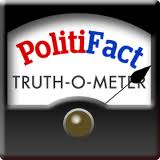
I think it’s fair to say that democracy in the United States is already pretty “deep”. As a US citizen, I feel incredibly lucky to live in a society whose history is rooted in democratic ideals—a society that continues to benefit from the types of “elections with integrity” that the 2012 Report of the Global Commission on Elections, Democracy, and Security promotes.
It’s therefore tempting to say that everything is just fine, that democracy in the United States is “deep” enough.
But I would argue that democracy, in any meaningful sense, requires an informed citizenry—and, accordingly, that an informed citizenry is a necessary precondition for all of the recommendations that the 2012 Global Commission Report contains. After all, if our votes are based on incorrect, missing, or otherwise flawed information, what is the point of filling out a ballot on Election Day? How can an election have “integrity” if voters haven’t accessed reliable information about the candidates and issues that public office would enable them to address?
In other words, “elections with integrity” should aggregate political views that emerge when citizens apply their own values and experiences to facts.
In this context, I’m troubled by the misinformation on which Americans all-too-often base their political beliefs—from both the politicians who obscure facts as they compete for votes and the news outlets that aim to satisfy a partisan audience.
For instance, after a Republican Congresswoman’s recent press release erroneously called Obama’s healthcare law “the largest tax on the American people in history”, Rush Limbaugh, a conservative radio talk show host, extended this incorrect characterization, declaring that the law constitutes “nothing more than the largest tax increase in the history of the world”.
Fortunately, it appears that America is beginning to recognize this troubling reality. Projects like FactCheck.org and PolitiFact.com monitor the factual accuracy politicians’ remarks, publishing their findings online. Politifact.com, for example, categorizes politicians’ statements according to their truthfulness. Its “Pants on Fire!” ranking is reserved for the greatest mistruths, including Mitt Romney’s statement that Barack Obama “didn’t even mention the deficit or debt” in his 2012 State of the Union address (when Obama actually did so six times) and the Obama campaign statement that Republican presidential contenders including Mitt Romney said that “they would cut foreign aid to Israel—and every other country—to zero” (when none of them actually did so).
It’s also a good sign that these projects are gaining recognition. Politifact.org won a Pulitzer Prize for National Reporting in 2009, and FactCheck.org has received three Webby Awards since it was founded less than a decade ago.
But in a society in which many of us get our news from blatantly partisan outlets (if not Jon Stewart’s comedic rendition on The Daily Show), these web-based fact checkers—however critically acclaimed—offer limited recourse.
Rather, Americans should aim to integrate the spirit behind these projects into our collective political consciousness. We must demand a higher standard of factual accuracy in public political discourse, because, ultimately, factual accuracy in politics is about more than just facts. It’s about building an informed citizenry and thereby protecting the “integrity” of our elections. And, in this manner, it’s about deepening democracy.
Katie Wynbrandt is an MPP student at the Blavatnik School of Government, Oxford.
This post is part of our Deepening Democracy series, responding to a September 2012 report by the Global Commission on Elections, Democracy and Security, on improving the integrity of elections. The series is being curated by the Blavatnik School of Government and hosted on Politics in Spires. It features contributions from students on the Master of Public Policy course at the Blavatnik School, as well as guest posts from Oxford and Cambridge scholars in politics and international relations.








1 Comment
Another thing I have noticed is that for many people, low credit score is the reaction to
circumstances over and above their control.
One example is they may have already been saddled
through an illness so they really have more bills for collections.
It could be due to a job loss or even the inability to go to work.
Sometimes separation and divorce can really send the budget in the
undesired direction. Thanks sharing your ideas on this blog.